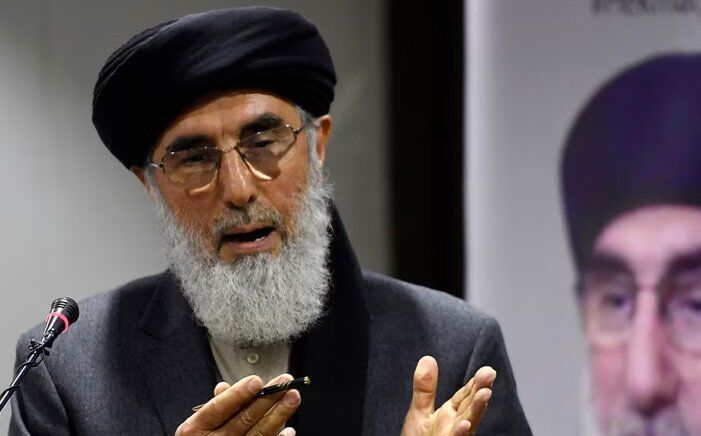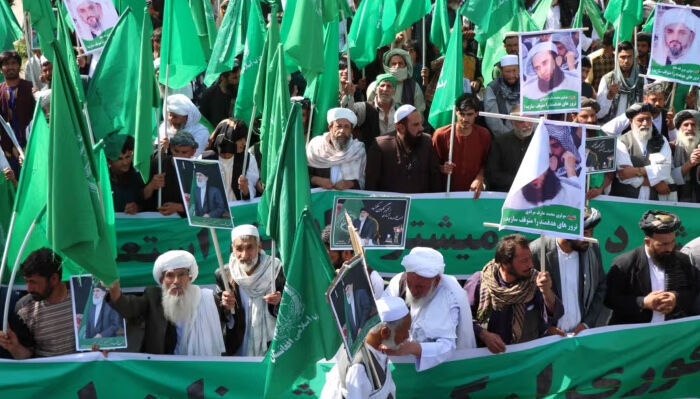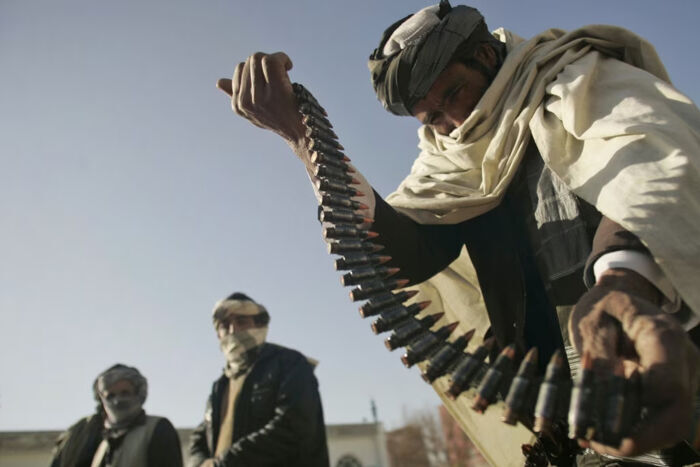
Among the high-profile targets is the Hezb-e Islami party led by Gulbuddin Hekmatyar, one of Afghanistan's most notorious ex-warlords and a former militant leader.
The move comes as the Taliban intensifies its efforts to stifle opposing voices in Afghanistan, where scores of journalists and activists have been jailed since the militants' takeover in 2021.
'Bad Policies'
Hekmatyar signed a peace deal with the former Afghan government in 2016, under which he was granted security and a government-funded residence in the capital, Kabul. The 76-year-old initially welcomed the Taliban's resumption of control in Afghanistan. But he has grown increasingly critical of the group, which has monopolized power, severely curtailed women's rights, and stamped out the free press.
In March, the Taliban forced Hekmatyar out of his government-funded residence and barred him from holding his Friday sermons. Members of his party were then prevented from meeting with him in his new residence in the capital. In April, a TV station owned by Hezb-e Islami was shut down. Barya TV mainly aired Hekmatyar's speeches and sermons.
"Totalitarian regimes deeply believe in one-party rule," said Obaidullah Baheer, a lecturer of politics at the American University of Afghanistan and Hekmatyar's grandson.
Hezb-e Islami and the Taliban are both hard-line Islamist groups that are mostly made up of Pashtuns.
"Some Taliban followers revere Hekmatyar and agree with his criticism of the group's bad policies, which the Taliban leader sees as a threat to his authority and the group's unity," Baheer said.
In August 2023, the Taliban formally banned all political parties in Afghanistan in a decree issued by Justice Minister Abdul Hakim Sharai.
Sharai, during a gathering in March, reiterated that "parties have no place in our political system." He added that "even mentioning the name of a party is a crime."
The minister also claimed that the Taliban had shown "full respect" to Hekmatyar.
'Sacred Duty'
Hameed Hakimi, an Afghanistan expert at the Washington-based Atlantic Council think tank, said the ban on political parties is aimed at preventing any future political opposition.
"The disenfranchisement and disarming of Hekmatyar sends a signal to those like him," said Hakimi.
Under the Taliban's theocratic system, spiritual leader Mullah Haibatullah Akhundzada, who is the "Amir ul-Momineen," or the leader of the faithful, has the final say on all important matters.
The Taliban sees "Afghans as subjects of Islamic law," said Hakimi, adding that obedience to Akhundzada is seen as Afghans' "sacred duty."
"It is detrimental to the future of Afghanistan and detrimental to any sense of pluralism."
Isa Ishaqzai, president of the Afghanistan National Congress party, said the Taliban is "terrified" at the prospect of Afghans raising their voices for "justice, human rights, and national interests."
"Political parties can inform people," Ishaqzai told RFE/RL's Radio Azadi.





Reader Comments
This is why Congress should DECLARE WAR as required in the Constitution, and not "authorize" endless military operations with no clear end-state.
What is the intent? Because the CIA is always creating or supporting "terrorist" groups in foreign countries to destabilize them, what are they doing here? In other words, it may not be a black and white situation.